Introduction
Understanding Cocker Spaniel Temperament: friendly and energetic companions
-
Cocker Spaniels are known for their gentle nature and strong bond with family members
-
These dogs thrive on attention and love being involved in family activities
-
Cocker Spaniels are intelligent and eager to please, making training enjoyable
-
Their playful nature and moderate energy levels suit active families
-
Early socialization is key to ensuring a well-rounded and confident Cocker Spaniel
1. The Cocker Spaniel Personality: A Brief Overview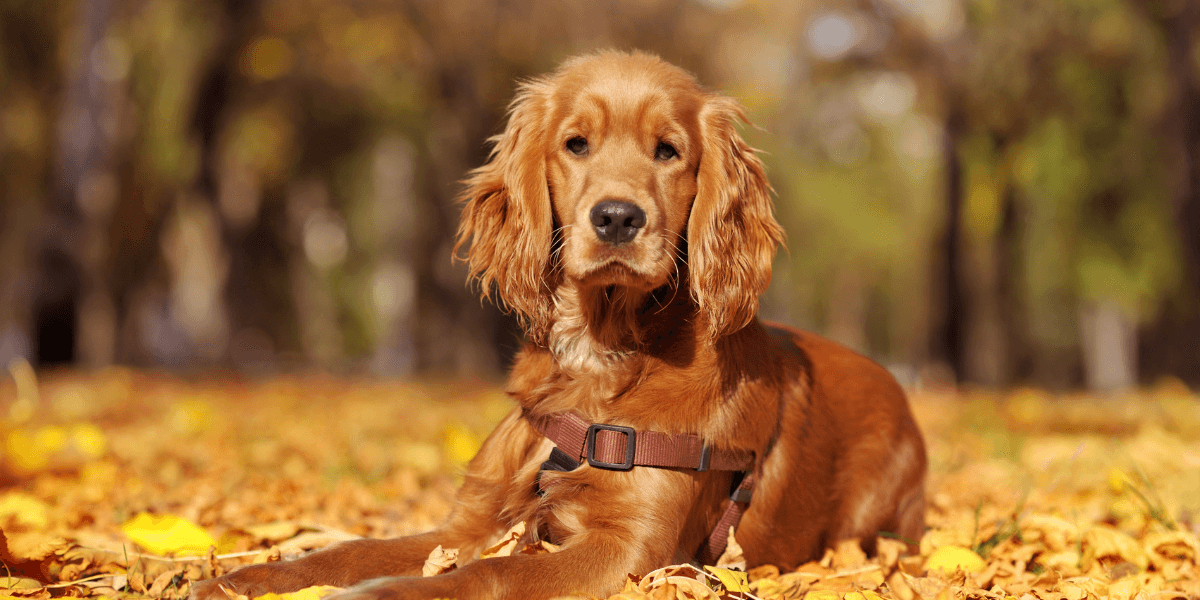
Cocker Spaniels are renowned for their gentle and loving personalities, They are:
- Friendly and Social: Cocker Spaniels generally very friendly with both people animals
- Intelligent and Trainable: They respond well to positive reinforcement techniques
- Energetic and Playful: Cocker Spaniels have a playful side and enjoy regular exercise
- Affectionate and Loyal: Cocker Spaniels form strong bonds with their families
- Sensitive and Gentle: They have a gentle nature, making them good with kids
- Curious and Alert: Cocker Spaniels are inquisitive and always aware of their surroundings
2. Socialization Needs: Building a Well-Rounded Dog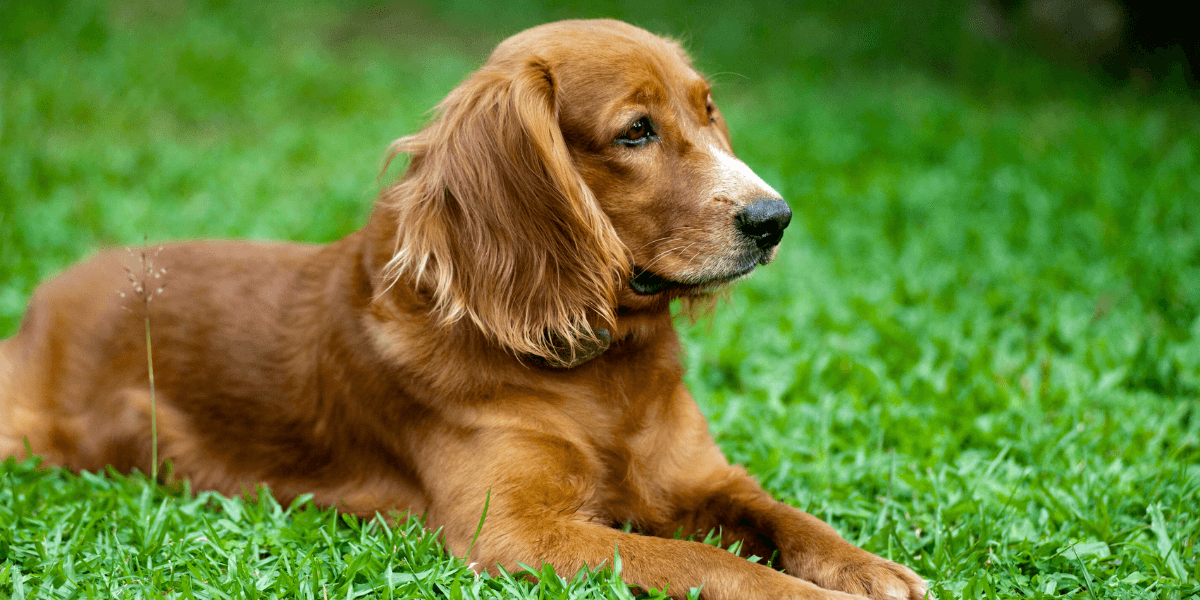
Here’s how to ensure successful socialization:
- Start Early: Begin socializing your Cocker Spaniel as a puppy
- Positive Reinforcement: Use treats and praise to reward your dog for positive interactions
- Consistent Exposure: Regularly expose your dog to different environments
- Diverse Experiences: Introduce your Cocker Spaniel to various people and situations
- Controlled Environments: Ensure early interactions are in safe, controlled settings
- Gradual Progression: Increase exposure gradually to avoid overwhelming your dog
3. Training Tips: Harnessing Their Intelligence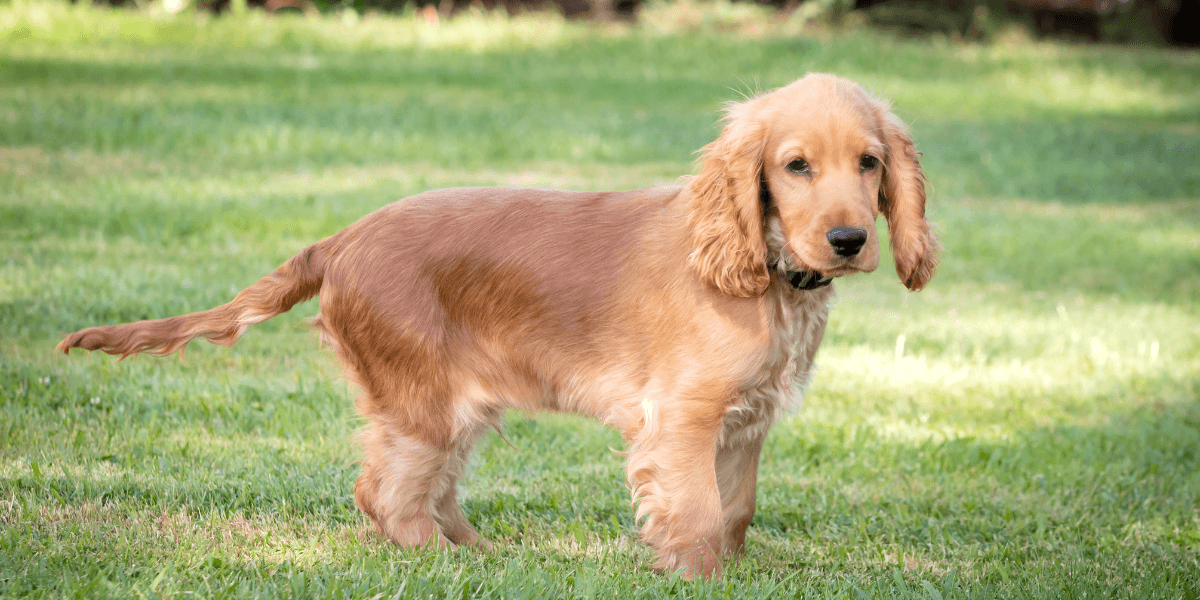
Here’s what you need to know:
- Positive Reinforcement: Reward-based training is highly effective
- Short, Engaging Sessions: Keep training sessions short and fun to maintain your dog’s
- Consistency is Key: Be consistent with commands and routines to reinforce learning
- Varied Activities: Use a mix of training exercises to keep your dog engaged
- Clear Commands: Use simple, distinct commands to avoid confusion during training
- Patience and Persistence: Be patient and persistent, as some skills take time to master
4. Exercise Requirements: Keeping Your Cocker Spaniel Active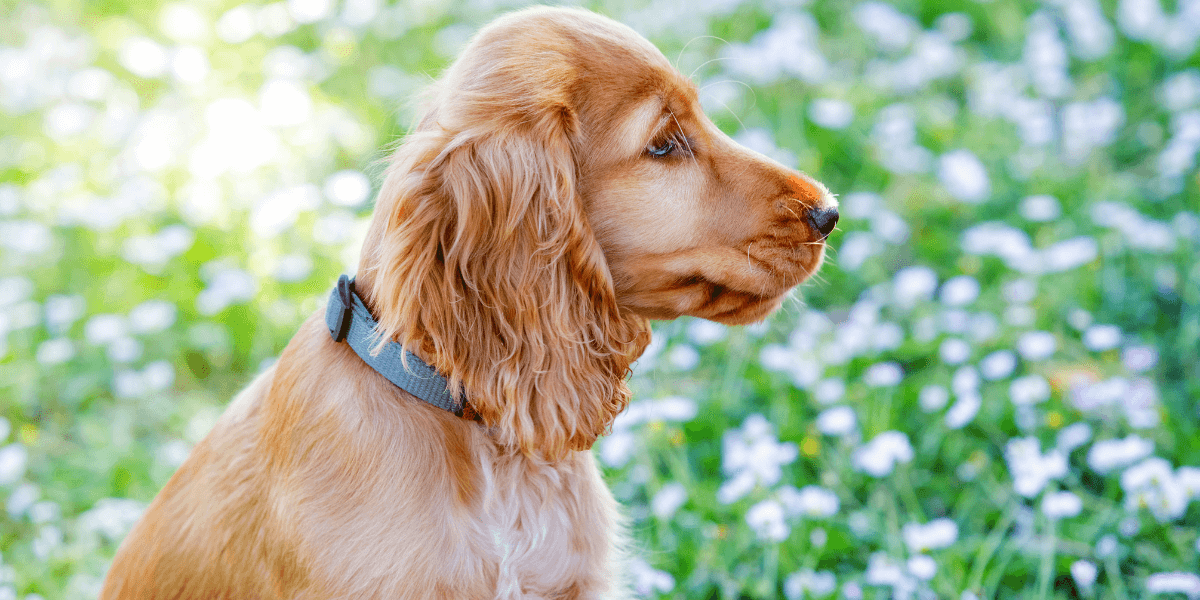
Here’s how to meet their exercise needs:
- Daily Walks: Aim for at least 30-60 minutes of exercise per day, including walks
- Interactive Play: Engage your dog in interactive games like fetch or agility training
- Avoid Overexertion: Monitor your dog’s energy levels and avoid overexertion
- Varied Activities: Include different activities to keep your dog mentally
- Playdates: Arrange playdates with other dogs to provide social interaction
- Healthy Weight: Regular exercise helps maintain a healthy weight and overall well-being
Ensure your Cocker Spaniel's joint health by learning about hip dysplasia prevention and management.
5. Grooming Needs: Maintaining Their Beautiful Coat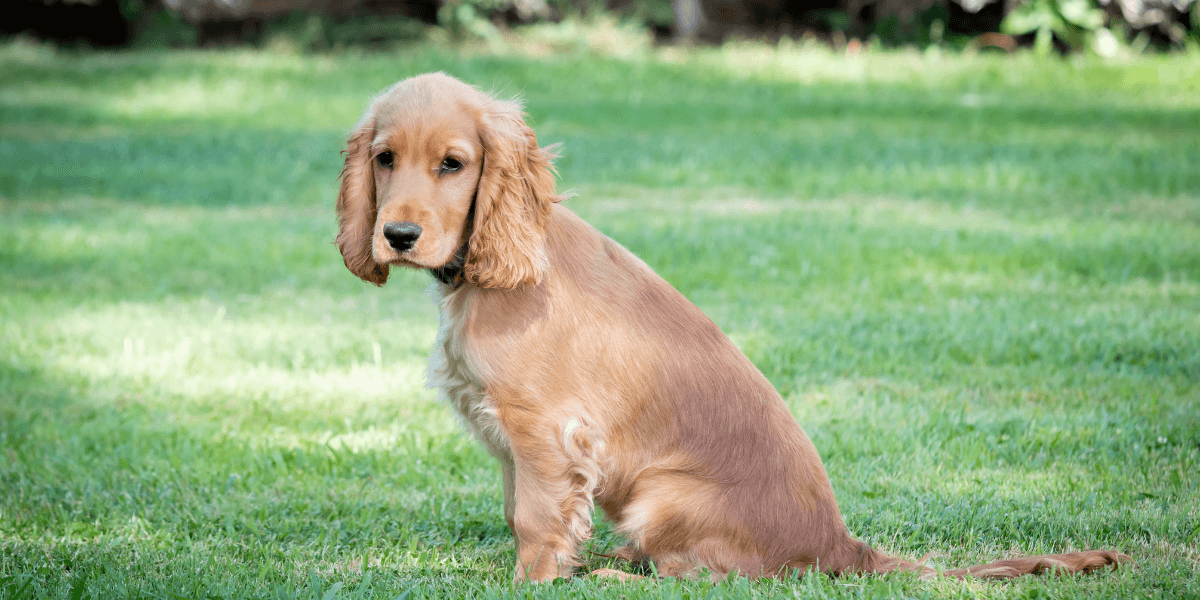
Here’s how to keep them looking their best:
- Regular Brushing: Brush your dog’s coat several times a week to prevent matting
- Bathing: Bathe your Cocker Spaniel as needed, but not too frequently
- Ear Care: Cocker Spaniels are prone to ear infections, so check their ears regularly
- Trim Nails: Keep nails trimmed to prevent discomfort and potential health issues
- Check for Parasites: Regularly inspect your dog’s coat for fleas, ticks, or other parasites
- Professional Grooming: Consider periodic professional grooming for a thorough coat
6. Common Behavioral Issues: Understanding and Addressing Challenges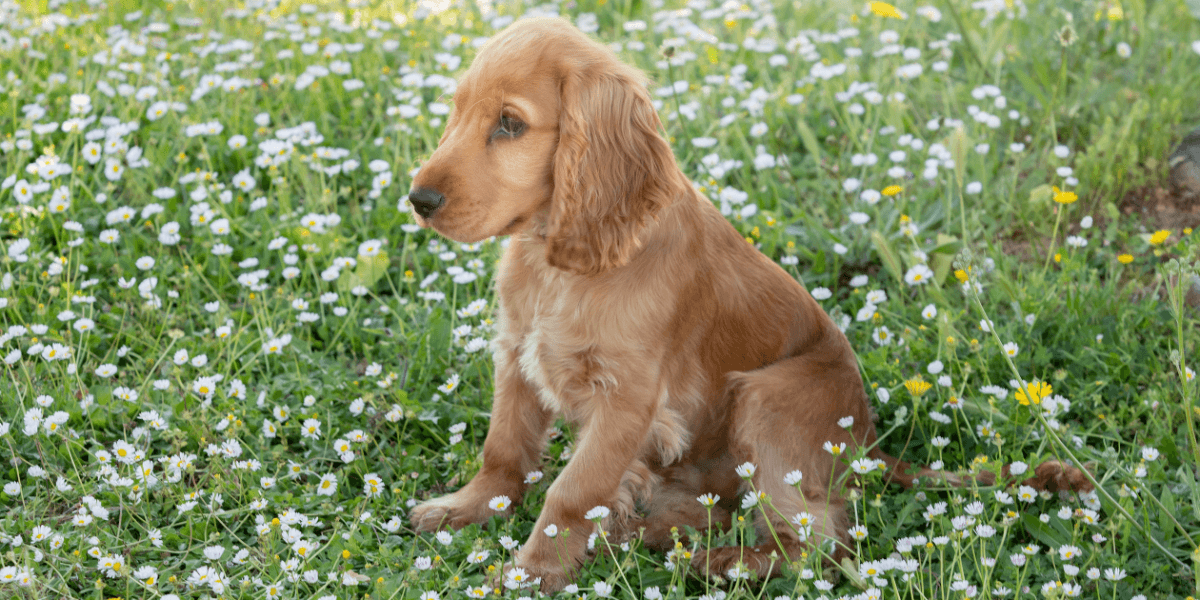
Here’s how to handle them:
- Separation Anxiety: Cocker Spaniels can be prone to separation anxiety
- Barking: They may bark excessively if not properly stimulated
- Chewing Issues: Provide appropriate chew toys to prevent destructive behavior
- Jumping Up: Teach your dog not to jump on people with consistent training and rewards
- Fearful Reactions: Gradually expose your dog to new experiences to reduce fearfulness
- Resource Guarding: Some Cocker Spaniels might guard their food or toys
Address your Cocker Spaniel's behavioral challenges with expert training tips inspired by Great Dane techniques.
7. Health Considerations: Keeping Your Cocker Spaniel in Top Shape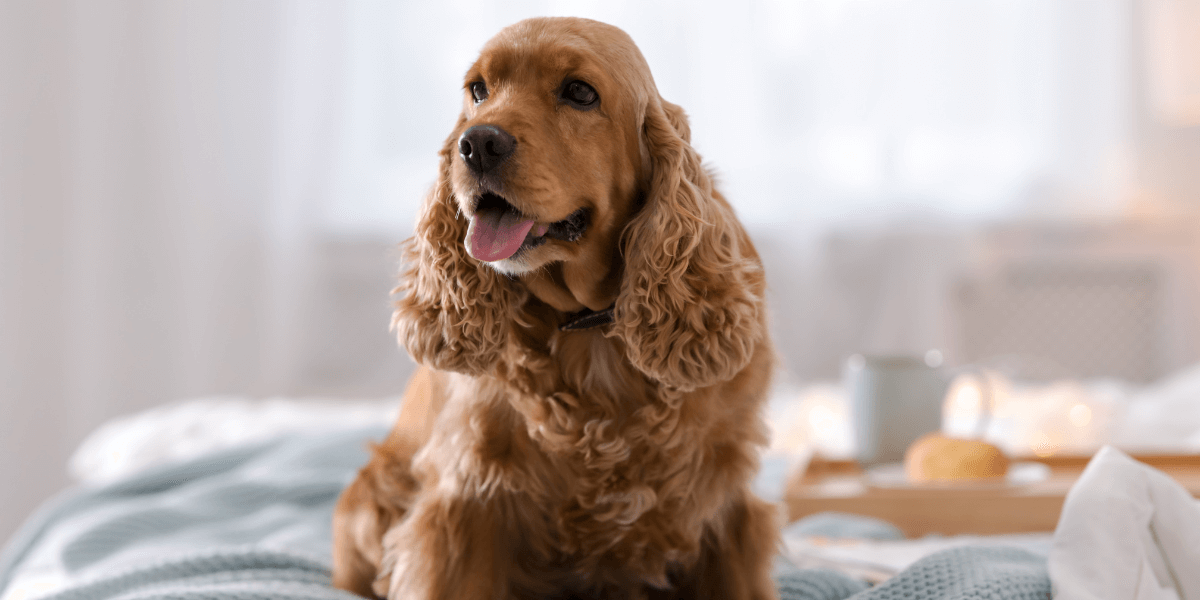
Maintaining your Cocker Spaniel’s health involves regular vet check-ups.
- Routine Vet Visits: Schedule regular check-ups to monitor your dog’s health
- Regular Exercise: Ensure daily physical activity to maintain a healthy weight
- Dental Care: Brush your dog’s teeth regularly to prevent dental issues and bad breath
- Weight Monitoring: Regularly check your dog's weight to avoid obesity
- Breed-Specific Issues: Regular screenings can help detect problems early
- Balanced Diet: Provide a nutritious diet to support overall health
Keep your Cocker Spaniel in top shape by understanding common health issues and their prevention.
FAQs
1. What is a Cocker Spaniel temperament?
- Friendly, affectionate, and playful
2. Are Cocker Spaniels good with kids?
- Yes, they are gentle and patient with children
3. Do Cocker Spaniels get along with other pets?
- Generally, yes. They are sociable dogs
4. Is a Cocker Spaniel easy to train?
- Yes, they are intelligent and eager to please
5. Are Cocker Spaniels prone to barking?
- Yes, they can be vocal if not properly trained
6. What makes Cocker Spaniel temperament unique?
- Their friendly and adaptable nature
7. Do Cocker Spaniels need a lot of exercise?
- Yes, they are energetic and require daily activity
Conclusion
-
Embrace the loving nature of Cocker Spaniels for a joyful, family-oriented pet
-
Understanding Cocker Spaniel Temperament helps in raising a happy, well-adjusted dog
-
Early training and socialization are crucial for a well-behaved Cocker Spaniel
-
Enjoy their playful energy and affectionate demeanor as part of your family
-
Cocker Spaniel Temperament ensures a loyal, intelligent, and fun-loving companion
References
For more information on Cocker Spaniel Temperament, check:
- Cocker Spaniel Breed Guide: Temperament, Training, Grooming & Nutrition
- English Cocker Spaniel Dog Breed: Information, Travelling & Transport Tips
- Best Exercises for Dogs with Hip and Joint Pain
- Dog Breeds Most Prone to Hip Dysplasia
- English Cocker Spaniel: Everything you need to know about this loving breed
Thank you!



